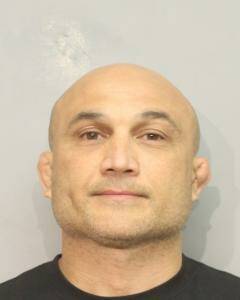A bill that would allow so-called “sustainable living research sites” skirt county building codes in Maui and Hawaii counties is moving through the state Legislature despite opposition from several state agencies and an ethics complaint against the bill’s sponsor.
SB 2274, sponsored by Sen. Russell Ruderman, a Puna Democrat, cleared the House Water and Land Committee on Monday. It would require Maui and Hawaii counties to create a specialized permit for the sustainable living sites on parcels of less than 15 acres within the rural and agricultural districts.
The sites would promote a live-in environment that emphasizes conservation, waste re-use, organic foods, renewable energy and shared living.
The committee advanced the bill on a 6-1 vote, with Rep. Faye Hanohano, a Puna Democrat, the sole no. Among the six voting in favor were Rep. Cindy Evans, D-North Kona, South Kohala, and Rep. Nicole Lowen, D-Kailua-Kona, Holualoa, Kalaoa, Honokohau.
Ruderman hadn’t seen the ethics complaint, and said he’s done nothing wrong in introducing a bill for a constituent.
He said the bill would still require a special use permit for activities it covers, so the public would still have a chance to comment before the planning commissions. Typical users of the special use permit would be communes, farmworker housing and extended families, he said.
“It would create an avenue toward legality,” Ruderman said. “There are a lot of properties on the island in legal limbo.”
Supporters say the research sites would provide data for the implementation of the Hawaii 2050 Sustainability Plan, reduce waste going to the landfill, promote the development of think tanks focusing on sustainable research and development, reduce dependence on imported food and increase employment in small business sustainable enterprises, among other pluses.
“It is currently in many ways illegal to live sustainably and in community,” said Ano Hanamana in testimony. “Sustainable living research sites need to be supported, protected, and honored. They are the key to our future.”
“I live in a community on the Big Island where we promote the development of people living together in a sustainable way where we reuse as much as we can, we recycle as much as we can, we take care of our own refuse and we teach how to live in this way to all those who visit,” added Bernadette Sabth of Puna. “Please help bring current zoning and land use codes into compliance with my community values.”
Opponents include neighbors of such proposed sites who worry about noise, unsanitary conditions, a deterioration of the neighborhoods and lower property values. Two state agencies also oppose the plan.
“The Department of Agriculture supports efforts to increase food production and promote agricultural education,” said Agriculture Department Chairman Scott Enright in testimony to the committee. “However, we feel that agricultural production should be the primary activity on agricultural lands.”
The state Office of Planning had similar concerns in its testimony. Planning officials said there are already mechanisms in place for just such experiments. Officials also worried that allowing more such experimental living sites could further dissuade farmers from working and investing in their farms because of fear of ensuing development.
Graham Ellis, president of the Hawaii Sustainable Community Alliance and a Puna developer, has been leading the charge for the bill, which he said he wrote for Ruderman, according to testimony submitted by Sheryle “Sativa” Sultan, a Seaview Estates resident.
Ellis couldn’t be reached for comment because he is on the mainland and doesn’t carry a cellphone, according to a man who answered his telephone Monday afternoon.
Sultan and eight others signed a letter Monday sent to the state Ethics Commission asking for an investigation into what they characterize as special interest legislation sponsored by a state senator on behalf of a tax-exempt nonprofit campaign supporter that is not registered as a state lobbyist. She said Ellis has several unpermitted buildings on his property and would therefore benefit from the legislation.
“SB 2274 was authored by a tax exempt entity to directly influence public policy and, if enacted, will tangibly increase the value of this tax exempt entity’s special interests,” the letter states. “This will enable them to avoid current zoning and special use permit issues that Mr. Ellis would not be able to accomplish without the passage of this bill.”
“Mr. Ellis said (on tape) at a public meeting on 3-3-14 that he is taking this approach i.e. authoring SB 2274 because back in 2010 he was denied a variance, or a special use permit, and thus the whole reason for going this route is ‘to sidestep the variance process,’” Sultan said in separate testimony to the House Water and Land Committee.
Ruderman reiterated there’s nothing wrong with sponsoring bills for constituents. He denied there was any tit for tat in helping a campaign supporter. Ellis was in a photograph with Ruderman in a campaign brochure before the last election.
“Of course bills are in response to constituent concerns,” Ruderman said. “What else would a legislator do? That’s what we do.”
Email Nancy Cook Lauer at ncook-lauer@westhawaiitoday.com.





